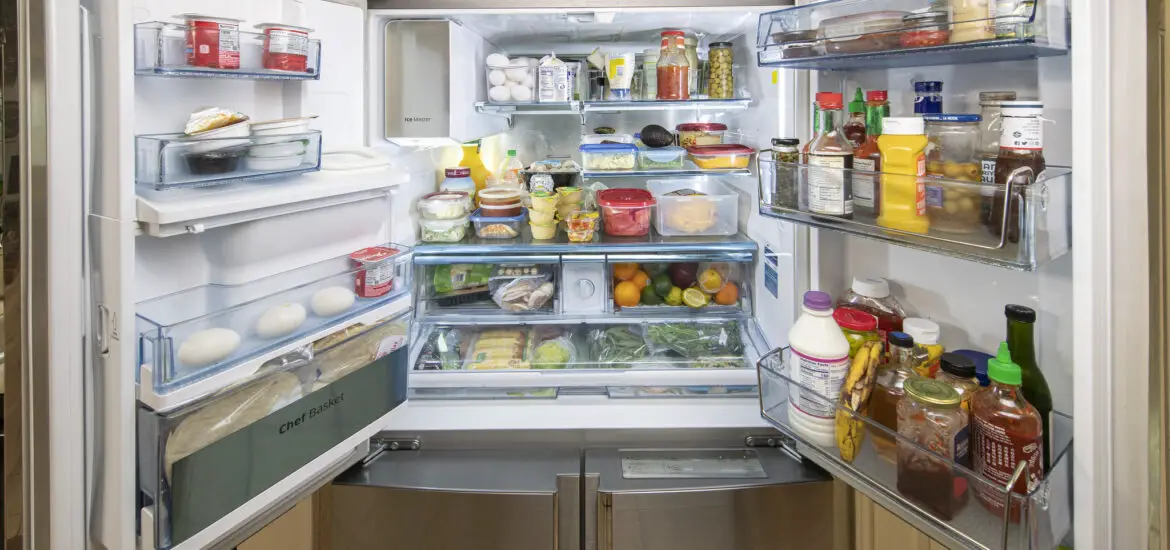“Will freon poison my food?” This article addresses this question thoroughly, providing you with comprehensive insights into the effects of freon on food safety and your health.

Table of Contents
Will Freon Poison My Food?
The primary concern about freon revolves around its potential to contaminate food. Freon is a refrigerant used in household cooling appliances like refrigerators and air conditioners. It is typically confined within the appliance’s sealed system.
In a well-maintained and properly functioning appliance, freon poses no risk to food. However, if the appliance develops a leak, freon can escape.
Direct contact between freon and food is uncommon, but if it occurs, the chemical properties of freon may lead to contamination. While freon is not highly toxic, its presence in food could cause health issues if ingested, especially in large quantities or over extended periods.
Symptoms from freon ingestion might include gastrointestinal discomfort, nausea, and in severe cases, more significant health problems. It is important to understand that freon poisoning from household appliances is relatively rare, but staying vigilant is crucial for safety.
Is Freon Harmful?
Freon itself, when contained within the cooling system of an appliance, is not harmful to humans. The danger arises if there is a leak. In small quantities and with short-term exposure, freon is generally not hazardous.
However, prolonged or significant exposure, particularly in enclosed spaces, can be harmful. Symptoms of freon exposure include headaches, dizziness, and irritation of the respiratory tract.
In high concentrations, freon exposure can lead to more serious health issues, such as difficulty breathing or even asphyxiation. The risk to health increases in scenarios where ventilation is poor, as freon is heavier than air and can accumulate at lower levels, where it might be more easily inhaled.
Identifying a Freon Leak
Detecting a freon leak early is key to preventing potential health risks and food contamination. Common indicators of a freon leak include a noticeable chemical smell near the appliance and ice buildup on the refrigerator’s coils. Your appliance might also struggle to maintain the correct temperature.
In addition, any unexplained symptoms such as nausea, headaches, or dizziness among household members could be a sign of freon exposure. If your refrigerator or air conditioner is older or has not been maintained regularly, it may be at a higher risk for leaks.
Regularly listening for unusual sounds like hissing, which can indicate escaping gas, is also a good practice.
Immediate Actions to Take in Case of a Leak
If you suspect a freon leak, it is crucial to act quickly to minimize health risks and potential food contamination. First, turn off the appliance to stop further leakage of freon.
Ventilate the area thoroughly by opening windows and doors to disperse the gas. It is advisable not to consume any food that you suspect might have been exposed to freon.
Immediately call a professional technician to inspect and repair the appliance. Handling freon requires specific skills and safety equipment, making it unsafe for untrained individuals to attempt repairs.
Preventing Freon Leaks in Home Appliances
To prevent freon leaks, regular maintenance of your cooling appliances is essential. This includes having a professional technician inspect your refrigerator and air conditioner periodically for signs of wear or damage that could lead to leaks.
They can check the integrity of the cooling system, ensuring that the freon is properly contained and the appliance functions efficiently. Keeping an eye out for early warning signs of a problem, such as your refrigerator not cooling properly or making unusual noises, is also important.
In addition, consider the age of your appliances. Older models may be more prone to leaks and might require more frequent checks or even replacement.
By being proactive about maintenance and staying alert to the condition of your appliances, you can significantly reduce the risk of freon leaks. Furthermore, doing this can safeguard your home environment and food from potential contamination.